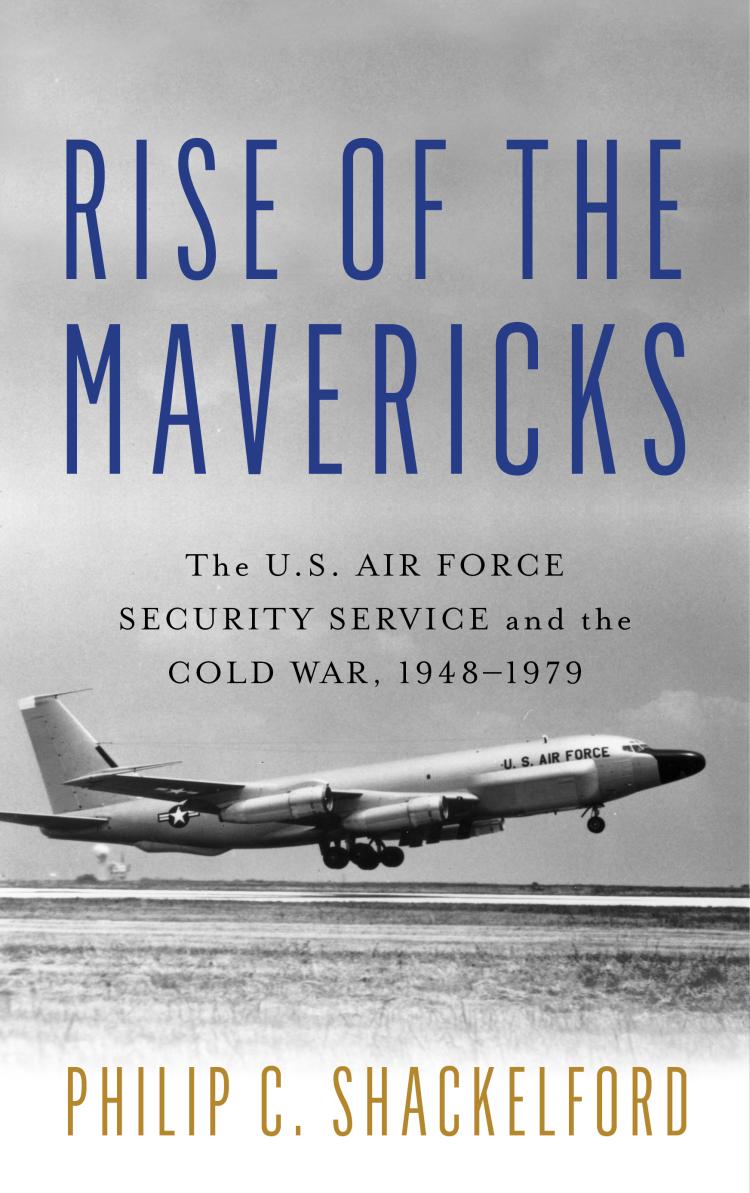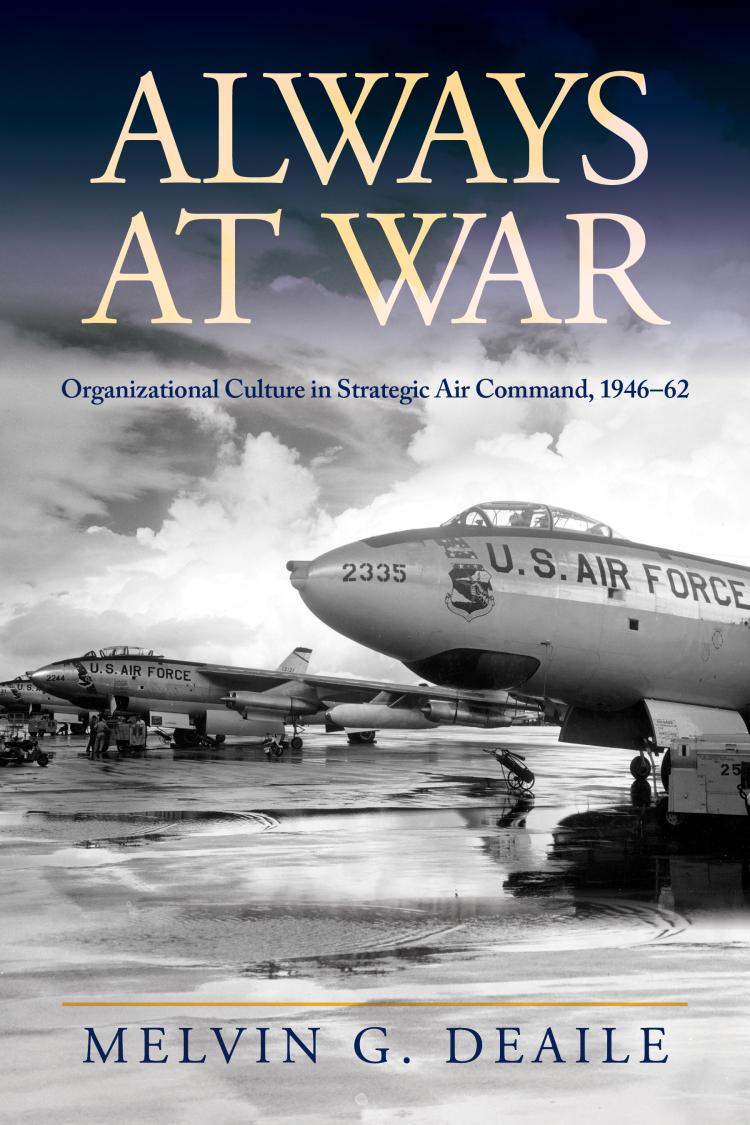Rise of the Mavericks
The U.S. Air Force Security Service and the Cold War
- Subject: Spring 2023 Catalog | Cold War | Aviation & Space | Society of Military History Conference
- Format:
Hardcover
- Pages:
248pages
- Published:
April 15, 2023
- ISBN-10:
1682478823
- ISBN-13:
9781682478820
- Product Dimensions:
9 × 6 × 1 in
- Product Weight:
17 oz
Overview
Rise of the Mavericks traces the beginnings and subsequent development of the U.S. Air Force Security Service. Established in 1948 as part of the emerging U.S. national security apparatus, this communications intelligence organization was meant to place the fledgling U.S. Air Force on a competitive footing with its Army and Navy counterparts. As World War II ended and the Cold War began, Air Force leaders understood that an effective cryptologic capability would be crucial for maintaining and enhancing the Air Force as a strategic and decisive component of America’s national defense. Successfully deploying air-atomic strategy in the event of a future war would require reliable information on the capabilities, intentions—and potential targets—of an opposing force, in particular the Soviet Union. Communications intelligence would be a critical source of this information, and Air Force leaders were adamant that their service not remain dependent on other service structures for this capability. The Air Force Security Service rose to the occasion, quickly establishing itself as one of the preeminent communications intelligence agencies in the United States.
Rise of the Mavericks fills the gap in the military and intelligence history literature and further complicates the literature surrounding the history of the NSA, which too often ignores or hastily addresses the contributions and role of the service COMINT agencies during the early Cold War period. The book explains how Air Force Security Service personnel were viewed as mavericks by other U.S. military and government organizations. The airmen lived up to this characterization by creating and developing an independent communications intelligence capability while persistently resisting the controlling efforts of the Armed Forces Security Agency and the National Security Agency.
Rise of the Mavericks fills the gap in the military and intelligence history literature and further complicates the literature surrounding the history of the NSA, which too often ignores or hastily addresses the contributions and role of the service COMINT agencies during the early Cold War period. The book explains how Air Force Security Service personnel were viewed as mavericks by other U.S. military and government organizations. The airmen lived up to this characterization by creating and developing an independent communications intelligence capability while persistently resisting the controlling efforts of the Armed Forces Security Agency and the National Security Agency.
About the Author
Editorial Reviews
“Philip Shackelford has crafted an insightful analysis of the U.S. Air Force Security Service. Rigorously researched and cogently argued, Rise of the Mavericks represents a vital contribution to the scholarship on the U.S. Air Force’s formative years and the role that its organic intelligence branch played in constructing U.S. Cold War national security.” —Sebastian Lukasik, Associate Professor, Air Command and Staff College
"Rise of the Mavericks is an extraordinarily well-researched book, and a pleasure to read. Shackelford helps to fill a glaring hole in our understanding of the history of Cold War signals intelligence. A must-read for all audiences interested in this fascinating subject.” —Dr. Vince Houghton, Intelligence historian and author of The Nuclear Spies: America's Atomic Intelligence Operation against Hitler and Stalin
“Rise of the Mavericks is a thorough and overdue study on the U.S. Air Force Security Service (USAFSS), a secretive organization that performed important collection and analysis of communications intelligence after World War II. Shackleford not only fills an important gap in understanding the development of the U.S. national security state but also succeeds in humanizing the story of the transition the U.S. government made as it moved from the Second World War to the Cold War.” — Dr. Sara Castro, Assistant Professor, Department of History, U.S. Air Force Academy and President, North American Society for Intelligence History
"It is best to call this book an academic work, it is not a novel, but a detailed, well researched, well documented study of the Air Force Security Service... The book is an excellent introduction to intelligence gathering." — Forward in Flight
"Cold War buffs and historians alike will appreciate this refreshing look at history not previously told!"—National Defense University Foundation Recommended Reading
"Scholars in military, modern US, Cold War, and airpower history will benefit from Shackelford's book. He used excellent primary sources ranging from declassified documents to command histories and historical studies issued by the NSA. For secondary sources, Shackelford used literature from prominent Cold War historians such as Douglas Stuart, Odd Arne Westad, and John Lewis Gaddis. Shackelford aimed to fill a gap in Cold War historiography by bringing attention to the USAFSS and their evolution in America's military cryptography. This book achieves that goal. Philip Shackelford and the Naval Institute Press have created an excellent book on the US Air Force and USAFSS, one that I am sure Shackelford's grandfather thoroughly enjoyed and was proud to read." —H-Net
"The history of how the USAF Security Service became a leading communications intelligence organization during the Cold War." —Military Heritage










